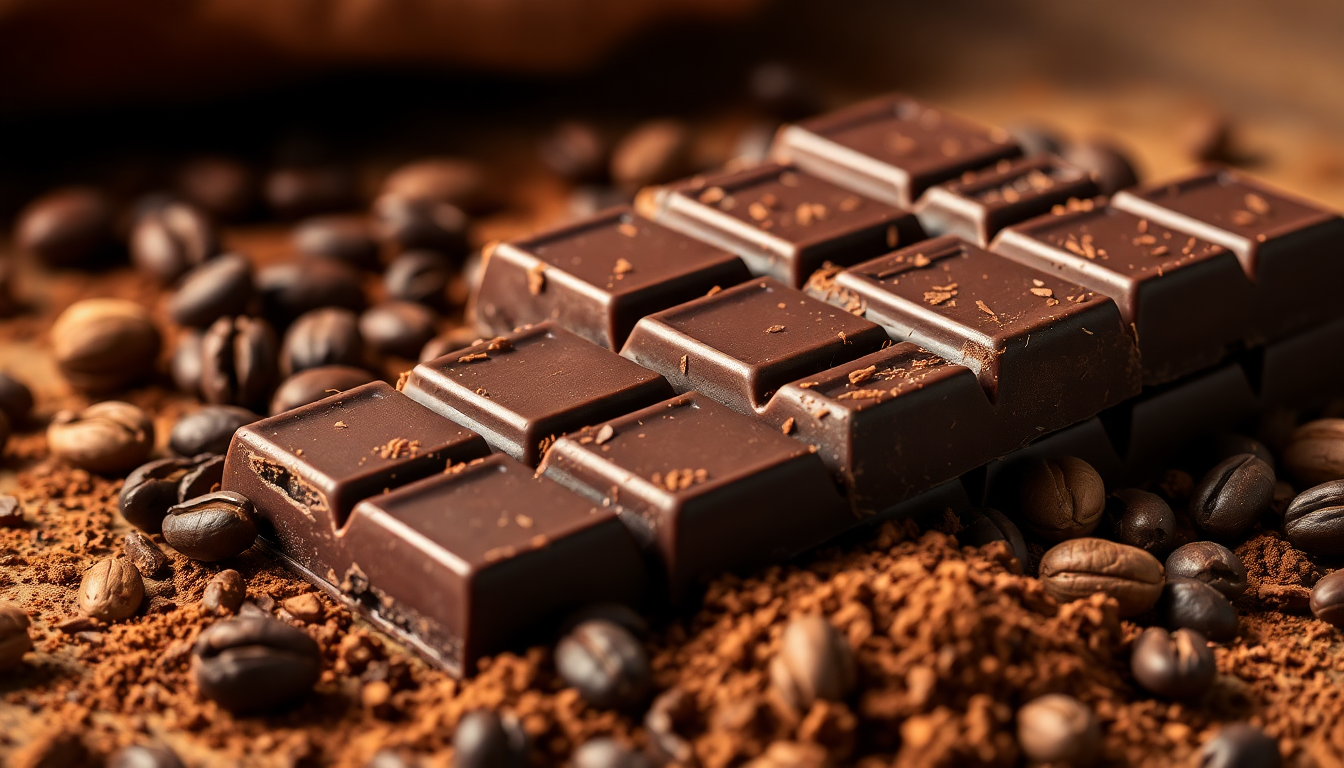
Dark Chocolate Nutrition: A Tasty Breakdown
Understanding the Basics of Dark Chocolate Nutrition
When we think of indulgence, our minds often wander to that rich square of dark chocolate. Yet beyond its captivating taste, there's a lot more hidden in the bars we adore—especially when it comes to nutrition. Dark chocolate nutrition is not only fascinating but also quite beneficial if you know what you're consuming. Whether you're seeking a treat or a small bite with health benefits, understanding the nutritional profile of dark chocolate can be an eye-opener, offering both decadent taste and potential health perks.
First, let's unbox what dark chocolate is all about. At its core, dark chocolate is made from cocoa beans, and the higher the cocoa content, the darker and more intense the chocolate tends to be. Typically, a good dark chocolate bar will contain 70-85% cocoa. This high cocoa content means you'll be getting more flavonoids and less sugar when you opt for darker chocolate vs. milk chocolate. Flavonoids are potent antioxidants found in cocoa beans that have been linked to numerous health benefits, which we'll dive into later.
Moreover, essential minerals like iron, magnesium, copper, and manganese are present in dark chocolate. For instance, a 100-gram bar of dark chocolate with 70-85% cocoa provides about 67% of the recommended dietary intake (RDI) for iron, and it’s an impressive source of magnesium and copper as well. So, if you thought satisfying your chocolate cravings was merely an indulgence, think again! There's genuine nutritional value in those dreamy squares.
The Health Benefits of Indulging in Dark Chocolate
Why do health experts sometimes suggest enjoying a small piece of dark chocolate? The secret is in those previously mentioned flavonoids. These compounds have been shown to improve heart health by lowering blood pressure, improving blood flow to the heart, and making blood platelets less sticky and able to clot. Now, that’s a sweet deal!
Another exciting benefit linked to dark chocolate nutrition is its role in improving memory and mood. Yes, nibbling on a little piece can actually brighten your day and sharpen your mind. It does this by increasing levels of serotonin and endorphins in the brain, chemicals known for easing stress and enhancing mood. Plus, the caffeine content in dark chocolate, albeit much lower compared to coffee, can still provide a small boost in alertness and mood enhancement without causing the jitters or crashes.
And for those concerned about their skin, some studies suggest that consuming dark chocolate with high cocoa content can reduce the harmful effects of sun exposure. The bioactive compounds in cocoa may improve blood flow to the skin and increase skin density and hydration. So, while sun cream remains non-negotiable, a little dark chocolate in your diet might contribute to your skin care regimen.
Dark Chocolate and Weight Management: A Unlikely Ally?
Dark chocolate may not be the first item that comes to mind when you think of weight management, but it surprisingly offers some supportive roles. One primary advantage is its potential to reduce appetite. The intense, rich flavor of dark chocolate might help curb cravings for sweeter treats. When indulged in moderation, it may help reduce the urge to overconsume sugary foods, allowing you to adhere better to your dietary goals.
The composition of dark chocolate also signifies that it is calorie-dense, so while it offers beneficial nutrients, portion control is crucial. With roughly 600 calories per 100 grams, enjoying it within limits is essential if you’re mindful of your caloric intake. However, when eaten in moderation, the sugar content in dark chocolate is considerably low compared to milk chocolate, which allows for a more controlled sugar intake without feeling deprived.
Moreover, like any good dietary component, timing plays a role. Consuming a small portion of dark chocolate post-dinner not only fulfills that sweet craving that often arises but also rounds off your meal, creating a sensation of fullness and satisfaction. Remember, pair your dark chocolate treat with a healthy balanced diet, and it can contribute positively to your nutritional goals.
Navigating the Choices: Picking the Right Dark Chocolate
Now that you’re keen on adding dark chocolate to your nutritional arsenal, it’s crucial to navigate the plethora of options available in the marketplace. Not all dark chocolates are made equal, and knowing what to look for can make all the difference in reaping those nutritional rewards.
First, the cocoa content: For health benefits, aim for options that contain at least 70% cocoa. The higher the percentage, the greater the cocoa content, and consequently, the more substantial the health benefits. Some chocolates label their cocoa contents prominently, making it easier for you as a consumer to choose wisely. Be wary of added ingredients like too much sugar or syrup; simple, clean labels are ideal.
Next, Consider fair-trade options. These chocolates support sustainable practices and ensure that cocoa farmers receive fair compensation for their crops. The quality and taste are usually superior, and your purchase contributes positively to the agriculture community.
In Conclusion: Dark Chocolate's Enjoyment and Benefits
So there we have it—the delicious, health-gaining greatness of dark chocolate unwrapped in all its forms. From its dark chocolate nutrition benefits, including essential minerals and flavonoids promoting heart wellness, to its potential positive impact on mood, memory, and skin, dark chocolate proves to be more than just a tasty delight.
As with all good things, moderation is key. Savoring a small piece allows you to enjoy the benefits without overindulging. Whether you’re a full-time chocolate lover or simply someone looking to tweak their treat options, embracing dark chocolate can add more than a hint of indulgence to a healthy lifestyle.



Leave a comment
This site is protected by hCaptcha and the hCaptcha Privacy Policy and Terms of Service apply.